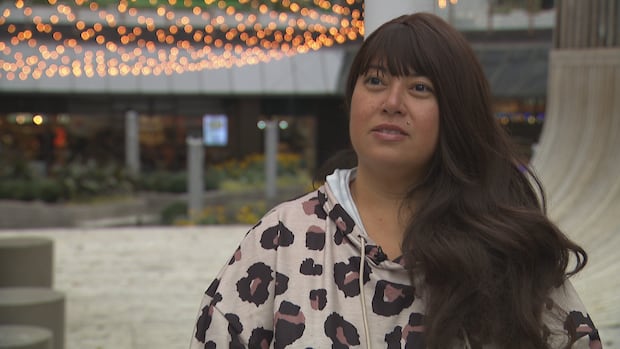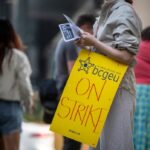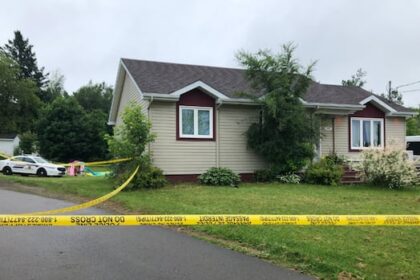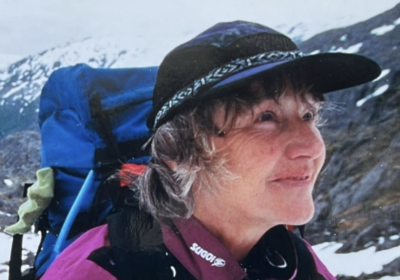British ColumbiaThe fees charged to exhibitors and food trucks in the City of Vancouver are set to be hiked by as much as 2,400 per cent as part of the proposed 2026 budget.Food truck and farmers’ market operators warn fee hikes could make them go out of businessAkshay Kulkarni · CBC News · Posted: Nov 13, 2025 7:00 AM EST | Last Updated: November 14Listen to this articleEstimated 5 minutesThe audio version of this article is generated by text-to-speech, a technology based on artificial intelligence.Corvette Romero, the owner of Shameless Buns food truck, says that proposed fee hikes for food trucks in Vancouver could significantly affect her. (Ryan McLeod/CBC)The fees charged to market exhibitors and food trucks in the City of Vancouver are set to be hiked by as much as 25 times as part of the proposed 2026 budget.As Vancouver Mayor Ken Sim has proposed a property tax freeze in the upcoming budget, city staff have had to find ways to raise revenues through other means, including cuts to some city departments and increased fees in other areas.Event organizers wanting to organize special markets can expect to pay $2,500 for events at the Vancouver Art Gallery (Robson Square) as part of a premium — a daily fee that used to be $100.Food truck and farmers’ market operators warn the fee hikes could make them go out of business, even as Sim has promised a thorough look at every aspect of the budget over the next two weeks.WATCH | Special market event fees go up in proposed 2026 budget:Fees to host special events in Vancouver like farmers’ markets could increase in 2026Event organizers are raising concerns about potential fee increases for some special events, such as farmers’ markets in Vancouver. As CBC’s Amelia John tells us, a city staff report suggests raising the rate by thousands of dollars at some locations.For Corvette Romero, the owner of the Shameless Buns food truck, the fee hike would severely impact her small business — and she was already strategic about which events she appeared at due to high fees.”If this were to go through, you’d see a lot of events disappear in Vancouver. And we’re already called the ‘No Fun City’ as it is,” she said.”Like, I don’t think we want to push that envelope any further, to be honest.”Romero estimates her business has already seen a 30 per cent downtick in revenue over the last year, saying residents have less disposable income in a tightening economy.Laura Smit, the executive director of Vancouver Farmers Market, says the nine markets that the organization co-ordinates run for many months — including in prime locations like Robson Square.The Downtown Vancouver Farmers Market has run in Robson Square every Wednesday for a number of years. (Ryan McLeod/CBC)”Farmers’ markets happen [on] more than one day. We’re operating for, you know, 26 weeks in some cases,” she said.”Seeking clarity around what the fees are actually going to mean is a top priority for us,” she added. “Because … if they were subject to that kind of increase, it would be hard for us to operate, admittedly.”The Downtown Farmers Market has run in Robson Square for most of the year. (Ryan McLeod/CBC)In an update circulated to city staff after the proposed changes were first made public, City of Vancouver finance general manager Colin Knight said the proposed fee hikes would only apply to commercial operators and not to non-profits and farmer’s markets.”Over the past two years, the volume of special event markets — particularly those with a commercial focus — has increased substantially,” he wrote. “This increase has placed added pressure on public spaces, many of which are also used for free community events and cultural programming,” he added. “A fee structure can help support balanced and sustainable management of these spaces.”Over 600 people to speak to budgetThe draft budget was first revealed to the public on Wednesday, and city councillors will vote on its general direction on Nov. 25, after more than 600 public speakers have their say over two weeks.A staff presentation on the proposed budget says it aims to prioritize front-line services, “pursue non-tax revenue optimization, reduce expenditures [and] identify efficiencies.”It adds that a 2025 civic survey found 60 per cent of Vancouverites who were surveyed were willing to pay more in user fees to maintain service levels.WATCH | Budget debate kicks off:Vancouver starts 2026 budget debateVancouver’s 2026 budget debate began Wednesday — but it could take a while. More than 600 members of the public signed up to speak on what will be Mayor Ken Sim’s final budget before next year’s election. Justin McElroy breaks down what’s in it — and why it’s attracted so much attention. While Sim has drawn flak for the promised zero per cent property tax increase — which critics warn will lead to deep service cuts — the mayor told CBC News in an exclusive interview that people in the city are struggling with an affordability crisis.”When we look under the hood, if it doesn’t make sense, it’s something that won’t get passed,” he said of the steep special event fee hikes.”But I want to be very clear, it was just presented and articulated [Wednesday] and we’re doing our due diligence and we will review it to make sure it does make sense.”WATCH | Sim says he’s proud of proposed budget:Vancouver’s mayor champions budget with 10% increase for police, cuts to arts and cultureVancouver Mayor Ken Sim’s last budget before next year’s election includes a property tax freeze, $50 million more for police, and major cuts to arts, culture, community services and sustainability. In an interview with municipal affairs reporter Justin McElroy, the mayor is clear that he thinks it’s a political winner. Sim was firm that the city’s climate and sustainability department would not be eliminated as part of staffing cuts — but later deferred and said it would be up to the city manager to find efficiencies and cut costs.”Could we see the climate and social sustainability department reduced somewhat next year?” he said.”The bigger question is … if we’re concerned about the environment and sustainability, is what outcomes are we getting?” he added. “And we are committed to making sure that the outcomes are there.”ABOUT THE AUTHORAkshay Kulkarni is an award-winning journalist who has worked at CBC British Columbia since 2021. Based in Vancouver, he is most interested in data-driven stories. You can email him at akshay.kulkarni@cbc.ca.With files from Amelia John and Justin McElroy
Vancouver could become more of a ‘No Fun City’ if special event fees increase: business owner











